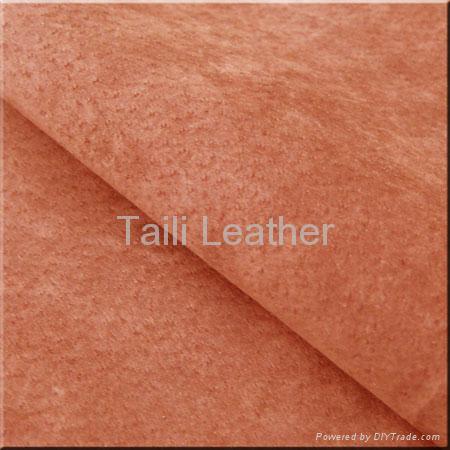There is nothing quite like the soft-spoken nod towards taste and refinement than a quality leather accessory.
Types of Leather
(this list is non-exhaustive)
(this list is non-exhaustive)
 | Pigskin - Economically priced leather, noticeable hair follicle pattern, thin leather generally .8-1.0 mm thick. |
 | Pig suede - Economically priced suede, noticeable hair follicle pattern, very soft, thin suede generally .8-1.0 mm thick. |
 | Cowhide - Maximum valued material for texture and appearance, top grain finish, extremely durable, firm yet easy to break in, comfortable, thickness vary greatly from .8 mm thick through 1/8" thick for belting and saddlery, grain can be from extra smooth through a pebble grain uniform pattern, generally less expensive grains will have some spider web type gain pattern. |
 | Cow suede - Maximum durability in a suede, comfortable, can come is a variety of softness; thickness can vary greatly from .8 mm thick through 1/8" thick. |
 | Goatskin - Economically priced leather more durable than pigskin but with a courser tiny pebble grain finish. Generally only available in weights of .9 to 1.1 mm thick. |
 | Horse hide - Can be expensive but lately has been pricing similar to cowhide but happens to be harder to work with, stiffer and stronger. Ideal for bag and cases or heavy biker garments. Harder to find these days. Thicknesses from 1.0 to 1/8" thick. |
 | Split Leather - Economically priced leather that can appear like top grain finish or a rustic cracked finish leather. Strong and durable and can vary in thickness from .8 mm thick through 1/8" thick. |
 | Calfskin - Rare in comparison to other leathers, baby cow, more durable than cow, thin, softer, thickness range from .8 mm to 2.0 mm thickness. |
 | Buffalo - Value priced, heavy duty leather, hair follicles and grain often evident, durable and generally found in thickness from .9 mm to 3.0 mm thick. |
 | Steerhide - A skin from a male cow or male buffalo that is generally the same properties of each but a bit tougher than the female skins. |
 | Sheepskin/Lambskin - Extremely soft, comfortable, pliable but can stretch and excessively distort the shape of the garment after excessive use, some tanning can be expensive, softer and plumper is more expensive, less expensive skins have a tight small pebble grain and the cheapest skins will be course in it's feel. |
 | Deerskin - Most value in softness vs. durability, extremely soft and extremely durable, generally very expensive. Pebble grain common. Soft touch and somewhat spongy in it's feel. Thickness is between 1.0 and 3.0 mm thick. |
 | Chamois - Is baby lambskin. Absorbent and naturally yellow in colour. This is the split section of the hide. Can be used in washable garments, stains easily, extremely soft to the touch and my dry stiff unless hung neatly to dry. Thickness is from .8 to 1.2 mm thick. |
 | Naked - This is a tanning process or lack of finishes giving it the Naked name. Any skin can be naked but most commonly you will find naked leathers in cowhide with all the durability and qualities of such. Generally a more expensive skin because they have to use choice skins (without markings and scars) for the leather to be used in manufacturing without waste. |
 | Distressed - A term used commonly these days as an uneven coloured finish. Most common in light brown naked buffalo leather (where each panel on a garment is rarely a perfect match due to the unique qualities of each and every skin). In the 50's though the 80's distressed leathers had been where the painted outer coat finish cam off or rubbed off during use. Some people still use words like "rub off" or "pull up" (pull up has extra oils in it for a similar effect). Distressed can come in a variety of thicknesses, textures, skins and even colours. |
 | Patch Leather - Random scraps of leather are sewn together and then pressed to make a large flat garment later cut into pattern parts to make things from jackets to bags. Generally any type of leather is used here. Most common is garment weights of .9 to 1.0 mm thick in a variety of pigskins, lambskins, goatskins, sheepskins and even cowhide. |






0 comments:
Post a Comment